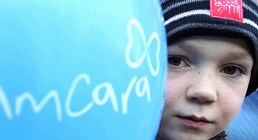“The sibling relationship is more complex than nearly any other, a mixture of affection and ambivalence, camaraderie and competition. Aside from our parents, there is no one else on earth who knows us better, because like our parents, our brothers and sisters have been beside us from the very beginning. Unlike our parents, however, our siblings are people we assume will be part of our lives for the rest of our lives. In terms of the span of time, the intimacy, and the shared experience of childhood, no other relationship rivals the connection we have with our adult brothers or sisters”
(Ref. TJ Wray Adult Sibling Loss)
Losing a sibling at any stage of the life span can be one of the most devastating events we will ever have to face and although this loss may be shared with other family members the manner in which it is supported may vary greatly. While Parents partners and children of the deceased may be prioritised as mourners and receive acknowledgement and social support, bereaved siblings may experience a shortfall in the social support available to them. Very often their unique loss goes unacknowledged and undifferentiated from the experience of the family as a whole.
At the same time as they are experiencing these deficits in social support, demands may be made on bereaved siblings to put aside their own grief in order to be available to and support their parents and surviving siblings. Bereaved siblings may wish to absorb their parents burdens even though they may be iillequipped to deal with the extent of the demands placed on them. The reversal of role involved in being required to buttress your own parents against the impact of the loss of their child can be overwhelming. They can often find themselves called on to fill the shoes of their dead sibling in the family script. The consequent disruption of identity can be extremely damaging and has the capacity to pose serious challenges to the individuals self concept. These disruptions combined with the shattering of any assumptions beliefs or expectations of what their life was and would be, can contribute to an altered worldview. Overall their loss can be described as disenfranchised. (Disenfranchised Grief; which in simple terms means that society fails to classify siblings’ grief as a legitimate loss.
When society fails to validate the grief and sadness of bereaved siblings, they may not receive the support needed to cope and adjust to their loss. In the absence of confidence that their grief may get a hearing they may opt to keep their feelings to themselves and may even invalidate their own bereavement need. In having to struggle alone with their loss they may be susceptible to medical difficulties with their grief.
Anam Cara aims to address this shortfall in support for bereaved siblings in collaboration with other organisations.
Anam Cara recognises that currently in Ireland, there is little literature available for bereaved siblings, and even less support.
As a bereaved sibling commented “When my only brother died after a brief illness at the age of 43, my initial response was to search for information that would help me make sense out of such a terrible loss. I felt a special need to connect with other surviving siblings who might understand my grief. Perhaps they could offer me some insight, some comfort, some practical advice that would help me through those first difficult weeks and months. I wanted to know: How had they survived this?”
The introduction of an online secure message forum specifically for adult siblings has been designed and developed by steering committee of bereaved siblings and will be launched this coming Autumn by Anam Cara.


